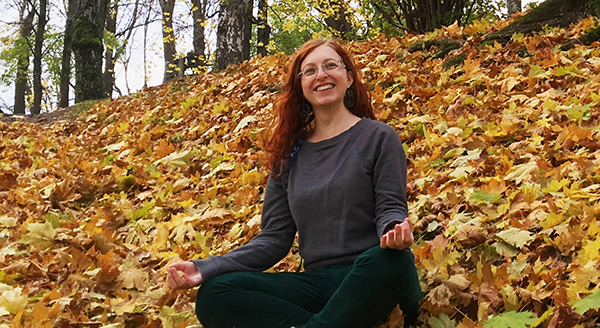
"Hi! I am Marina from Germany. Like many others, I fell in love with Estonia during my exchange semester as a Bachelor student and just had to come back. Now I am a PhD student of Veterinary Medicine at Estonian University of Life Sciences. When I am not working on my research, I write about Estonians, Estonia and what it's like to live here as a foreigner (check out my blog: ina-on-the-road.com). I am often asked: “What is it about Estonia?" and I do my best to explain, but in the end, after talking for hours and showing pictures, it comes down to: “You have to come and see for yourself.” And what better way to spread the love for this country and its opportunities for international students than as a Student Ambassador?" - Marina
There is something about winter in the North. I first think of the cold, the dark, and nowadays there might not even be snow. But of course, there is more to it. Short days make the evenings longer – evenings by the fireplace with a cup of tea and long talks with friends. Nights with hot wine. Walks on Tartu’s Toomemägi in the dark can be magical with those orange streetlights all over, the lit up dome ruins and the stars above. There is a chance of seeing Northern lights and of course, there are Christmas decorations. If there is snow, it is the most amazing thing I can imagine. Have you ever been to a sandy beach when it was snowing? And there is always the hope of having enough ice on the sea that will make it possible to drive to one of the islands by car. I love Estonia even in November. Yes, it is cold and dark. But it is beautiful, and people tend to move closer together at this time of the year.
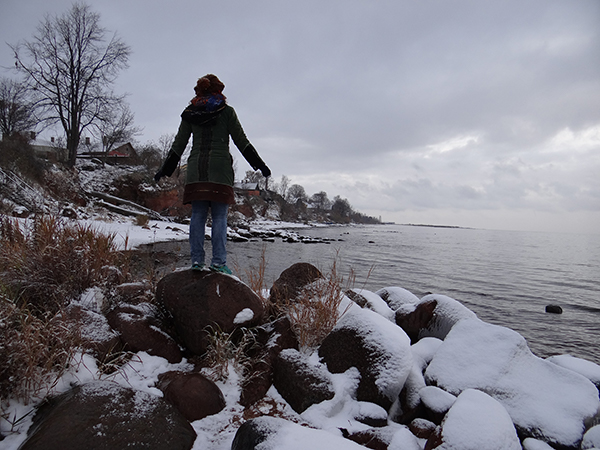
By the sea. Photo: Marina
So you, too, have made the decision to study abroad for a semester, and although you knew it was up North and going to be dark and cold for a while, you chose Estonia. Now you’re here, it is fantastic, but… it is very dark. It is quite cold. And the pandemic limits the opportunities for socializing.
How do we deal with this very special winter?
First of all, have you taken your vitamin D today? With so little sun to help our bodies produce the vitamin naturally, we can feel tired and exhausted quite quickly, so yes, we should supplement. All set? Well then, here are some tips that have brought me through two winters in Estonia and that are helping me also through this uncertain time.
Remember that the problem is basically only November. In December we have the Christmas lights, the Christmas markets, and the Christmas vibes, and after Christmas, days are already getting longer again. And if there happens to be snow then that makes everything seem a bit lighter!
Remember that Estonian nature is incredibly beautiful – also in winter. Being outside is a mood booster, even at these darker times. Find the beauty in the little things, like the last orange leaves on a tree in your nearest park. Also, don’t these naked birches look just amazing, reaching high into the sky with their long and thin branch arms?
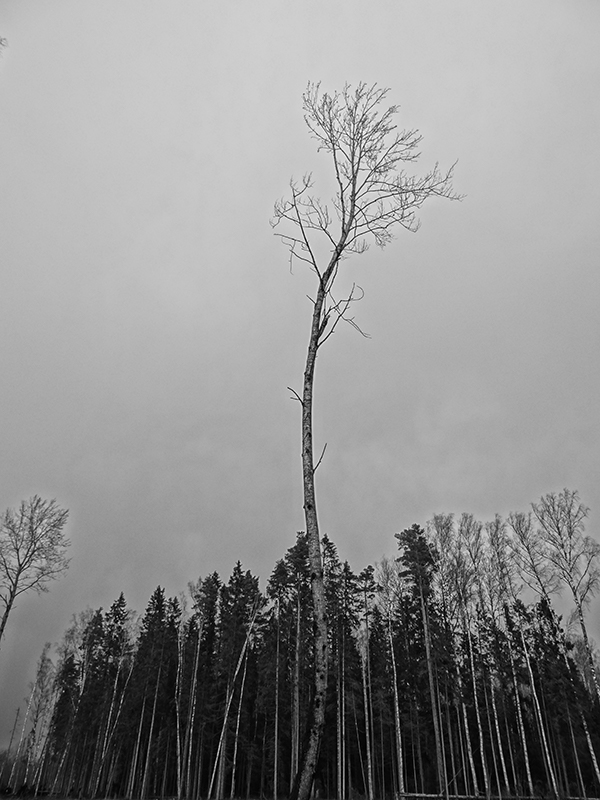
Tree branches. Photo: Marina
Use the weekends to get away from the city, though – rent a hut in the forest, hike through the quiet and mystical landscape, heat up the sauna and jump in the icy pond afterwards. You may have the chance to see wildlife up close, or, yes, if you go to the North coast, you may see Northern lights (called virmalised) in Estonia. To me, the most magical places in winter are the shore of Peipsi lake and the coast of Lahemaa national park.
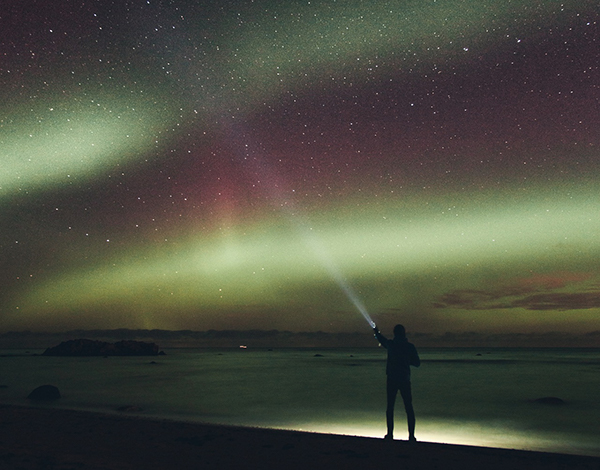
Northern lights. Photo: Kristoffer Vaikla
Remember to keep moving, to produce serotonin, and to keep warm. The opportunities for sports (with instructions in English) are almost unlimited. Even if you can’t go skiing, there are for example indoor ice skating opportunities (for example in Tartu’s Lõunakeskus). Go for a run or join gym classes (if pandemic restrictions allow) – from aerobics, yoga, and Pilates to all kinds of dancing, anything is possible in your university’s gym club or in studios outside. You may get to know some really cool people there, too. Classes are very often available in English, even if the course description doesn’t say so. You have probably already noticed that practically everybody here speaks good English, and so does your yoga/dance/gym class instructor. Even in courses that are normally held in Estonian, the teacher will very gladly translate for you or even do the entire class in English, most Estonian participants don’t have a problem with that – just let the teacher know that you don’t speak Estonian (very well).
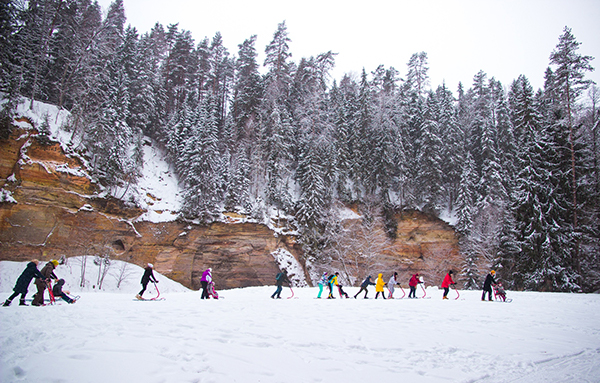
Hiking trip in Taevaskoda. Photo: Katrin Laurson
Also, remember that this is not an actual lockdown, even with the varying restrictions that have been applied. You may have experienced much worse in your home country. You can still hang out with friends, go for a walk and try different outdoor activities. Conversations with old and new friends make you forget the dark and the cold.
In case you still feel down – there is help. If even calling a friend or family member back home doesn’t quite do the trick, your Estonian university has got you covered with free counselling by professional psychologists in English or Russian language. Check out your school’s homepage!
- University of Tartu - psychological counselling
- Estonian University of Life Sciences - support services
- Tallinn University - psychological counselling
- Tallinn University of Technology - psychological counselling
- Estonian Academy of Arts - support services
Text: Marina
